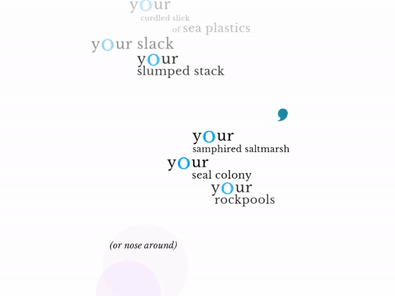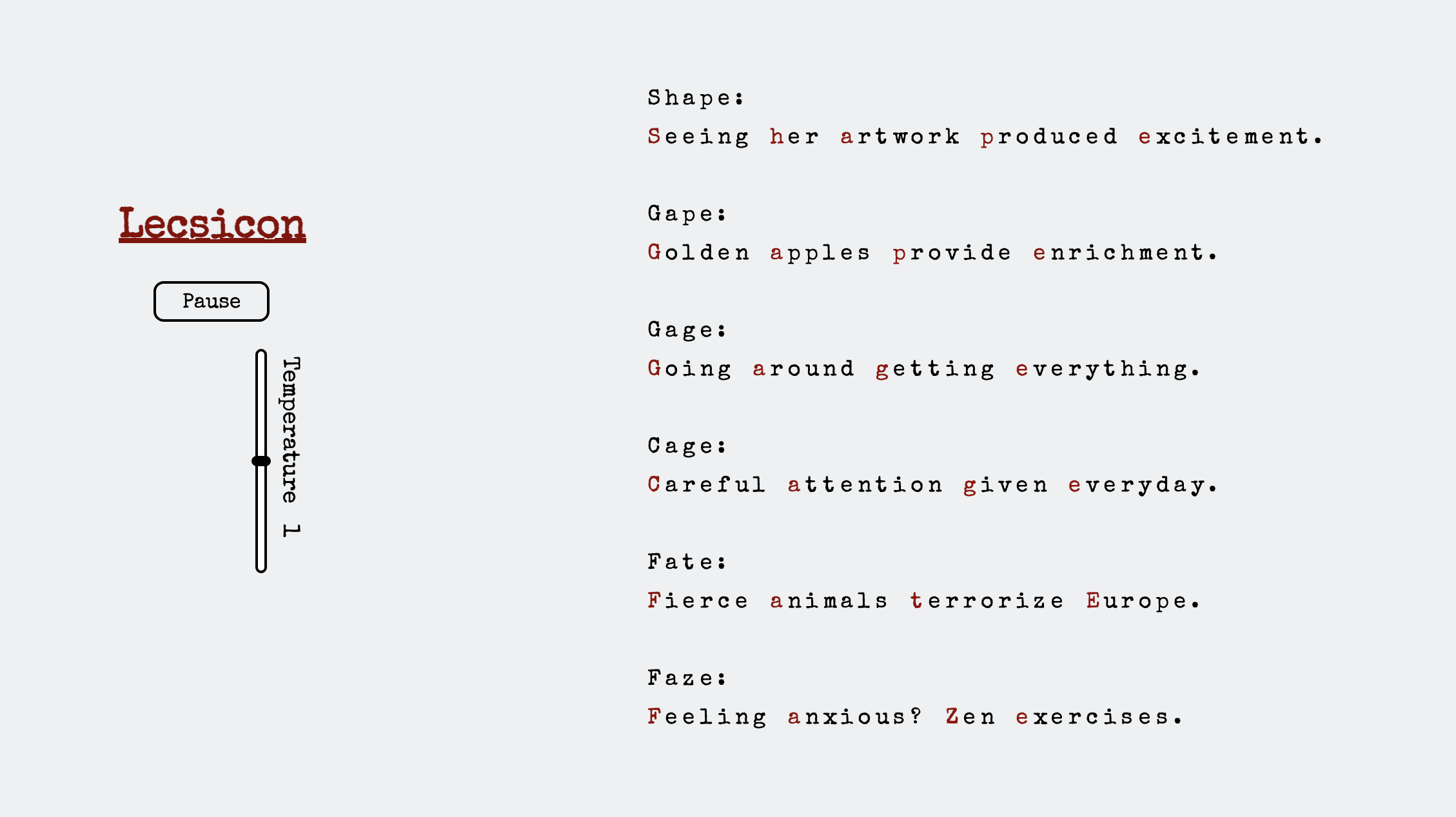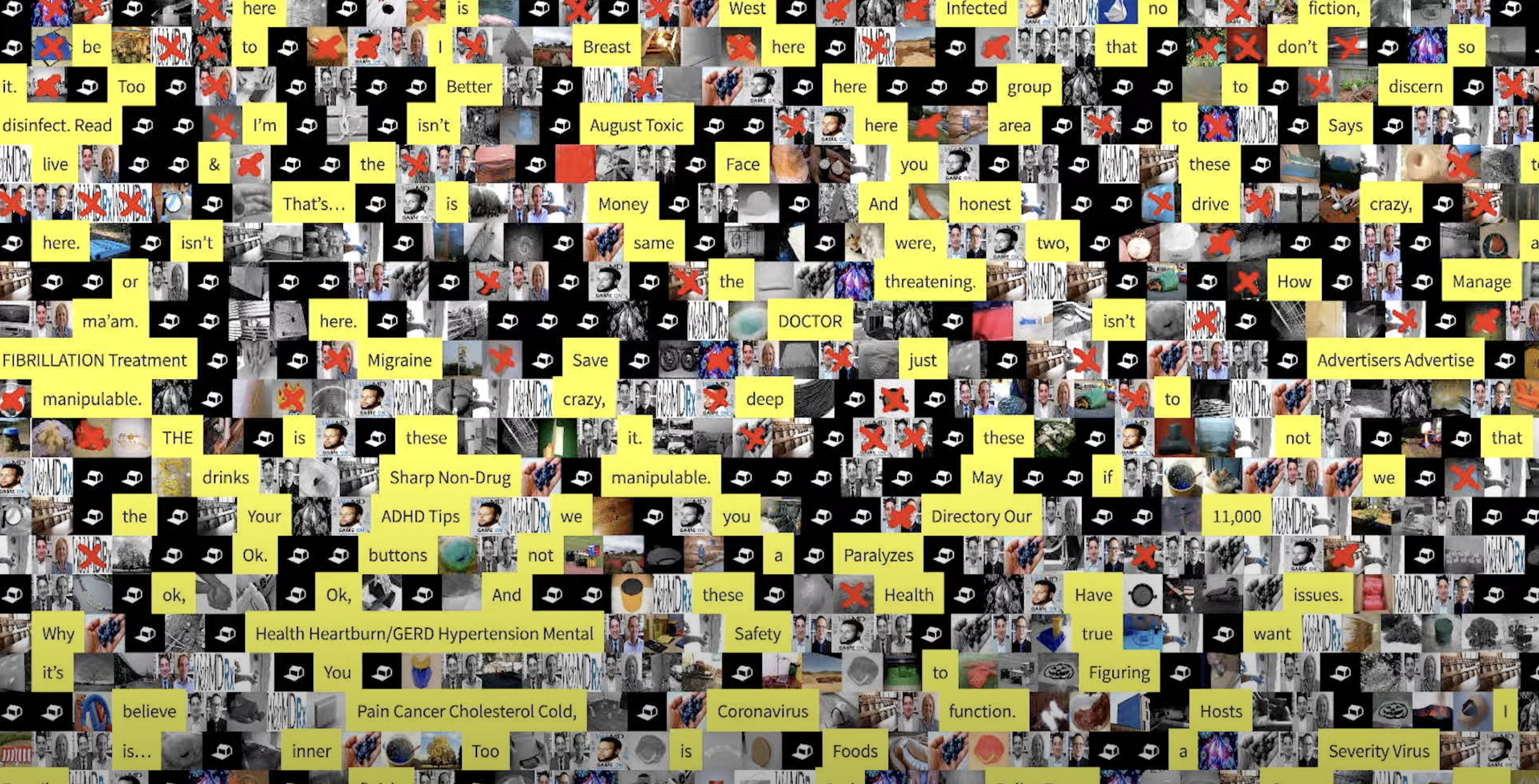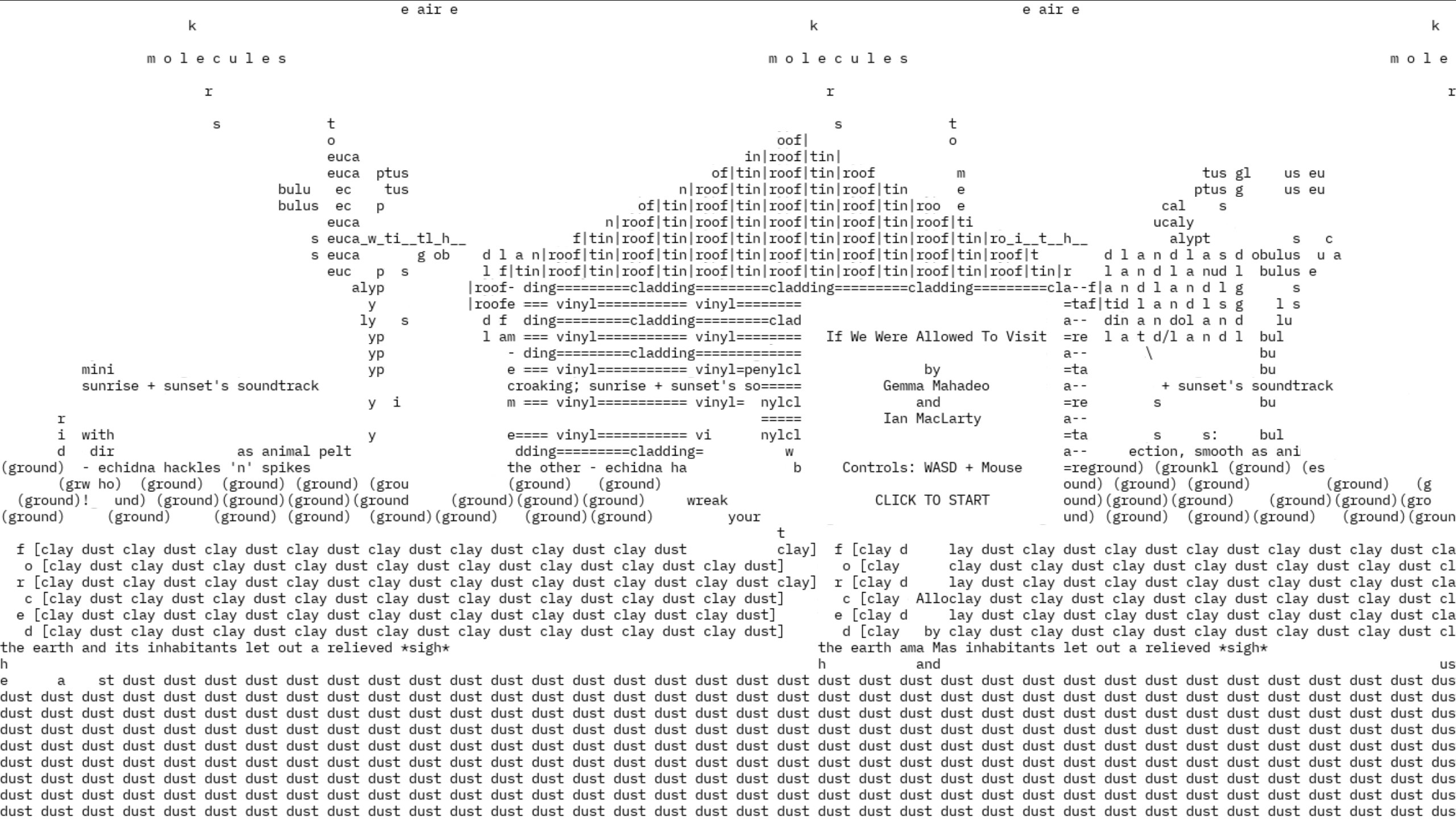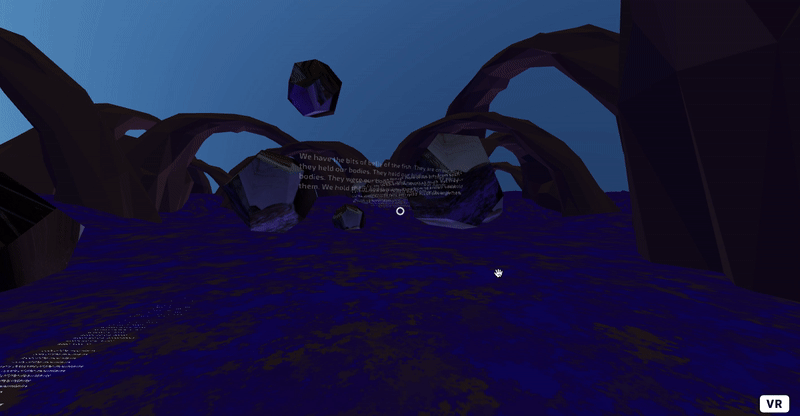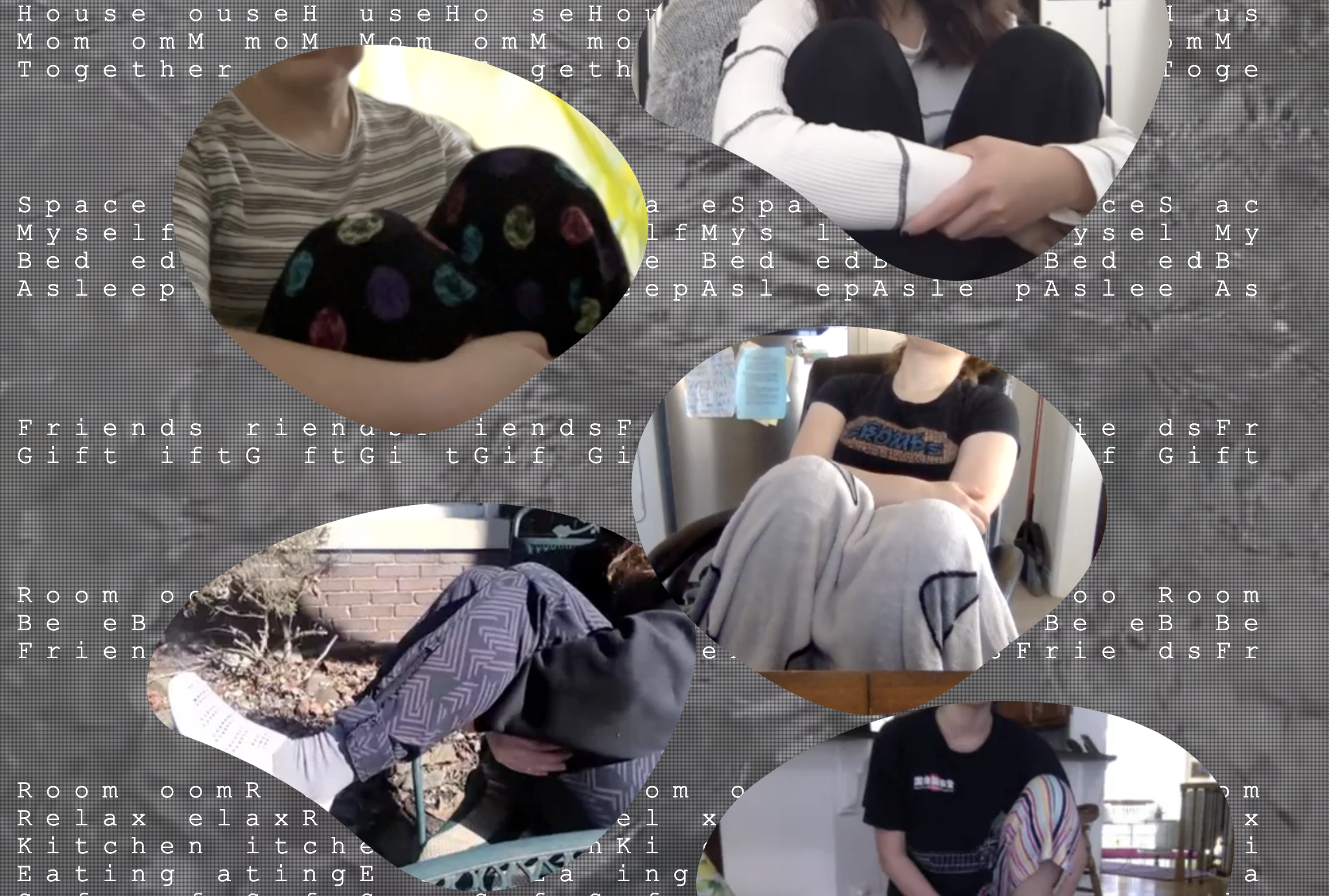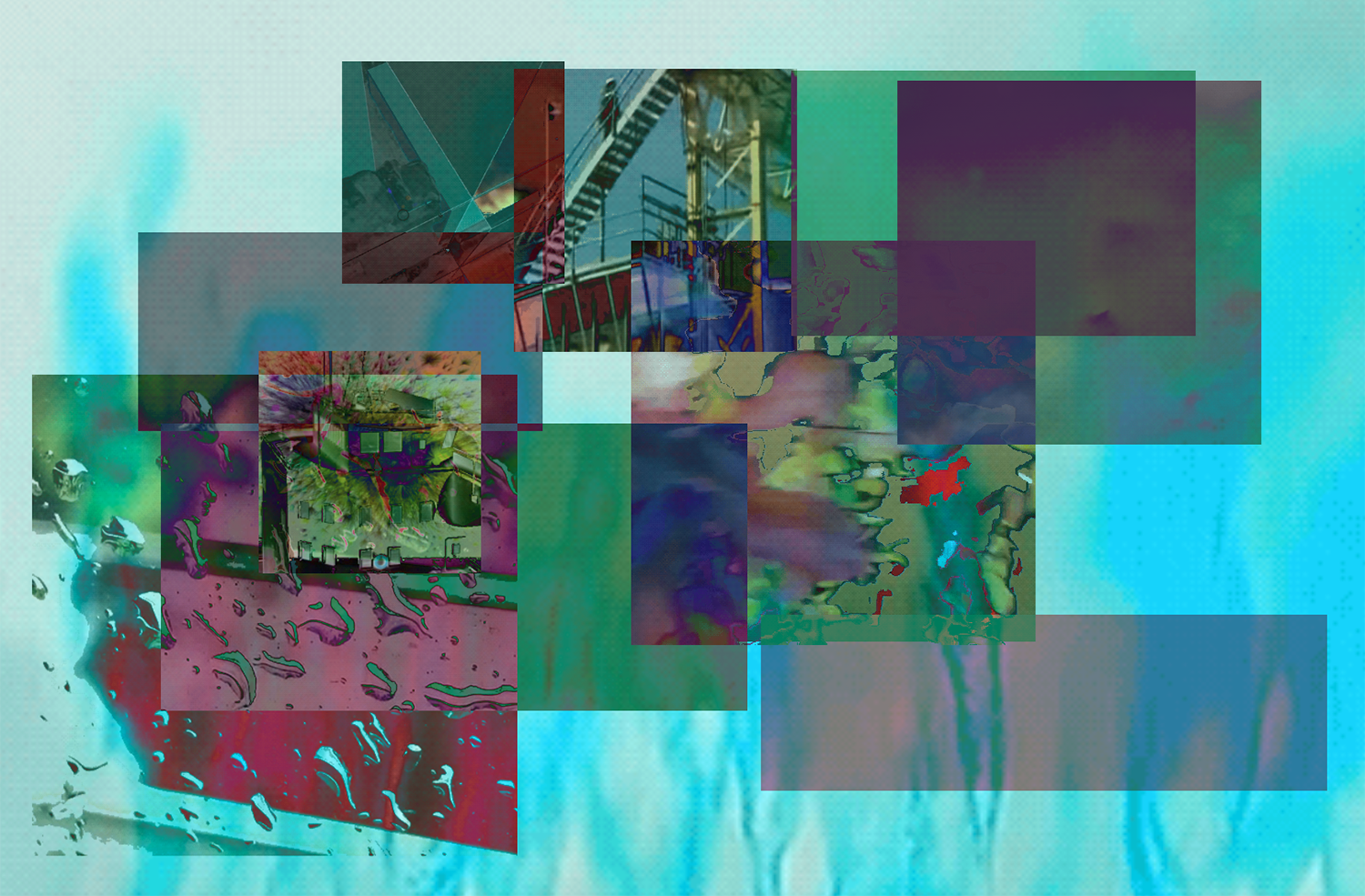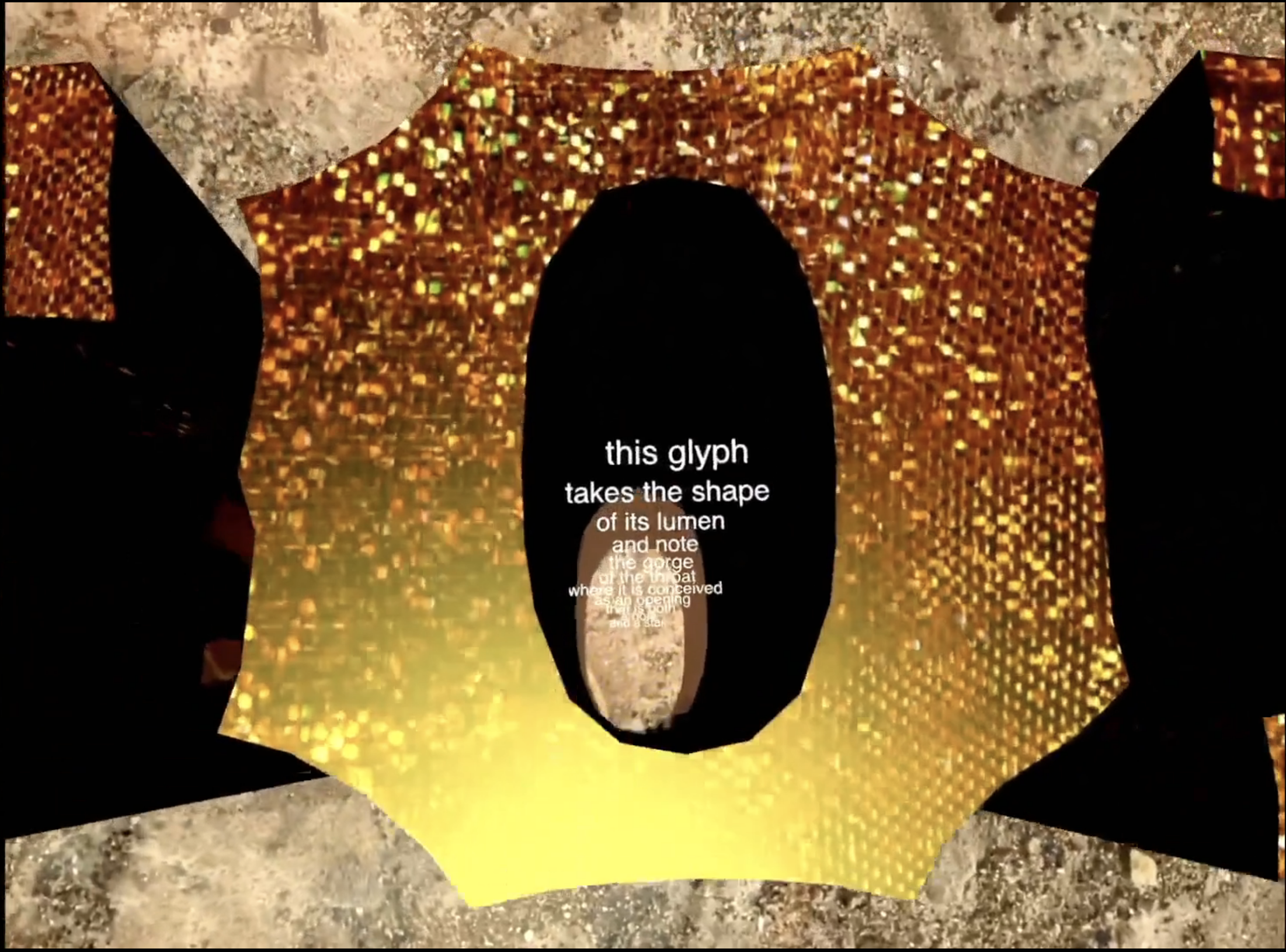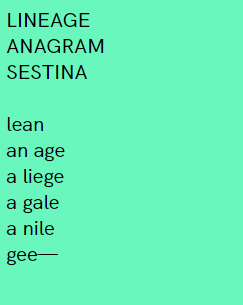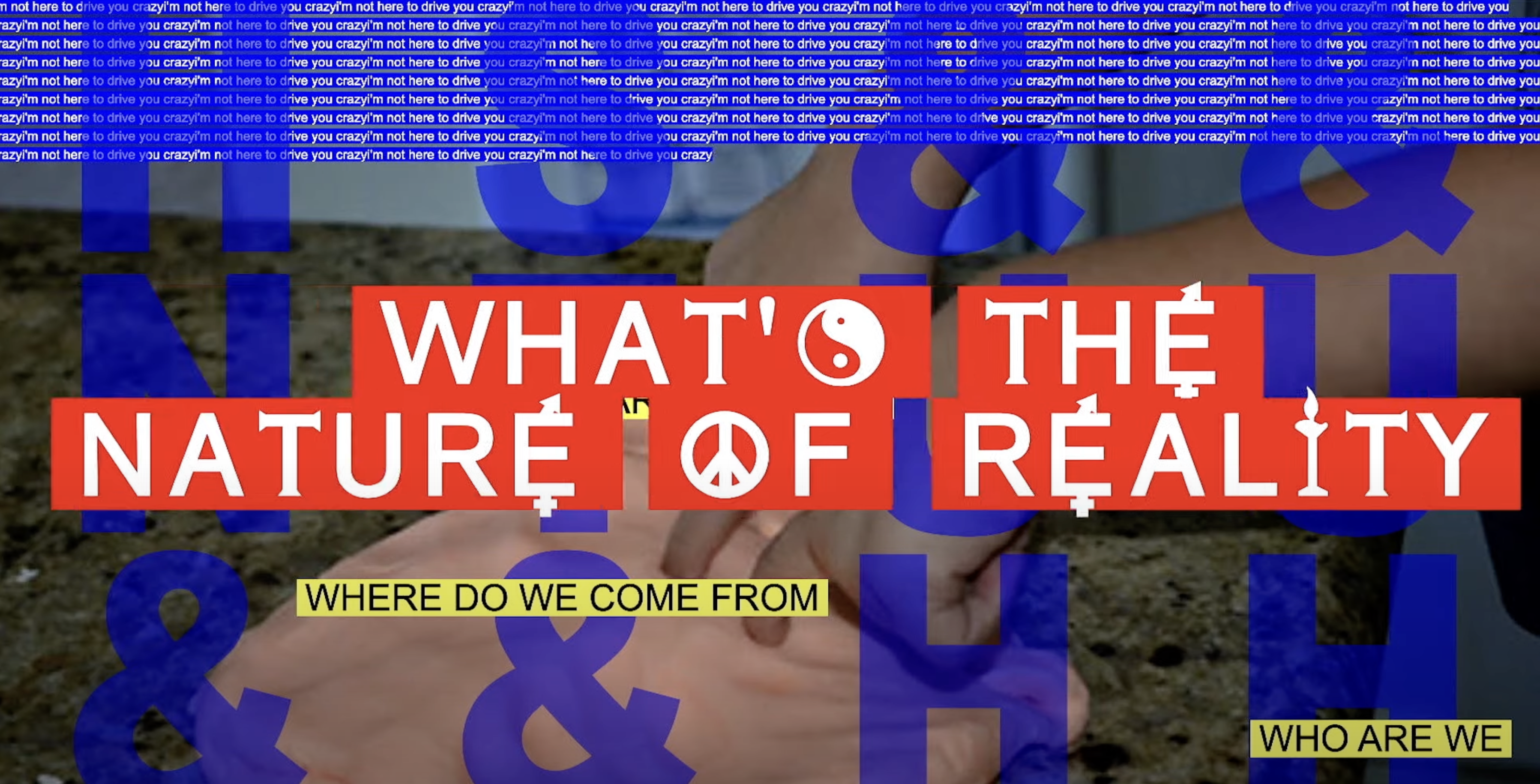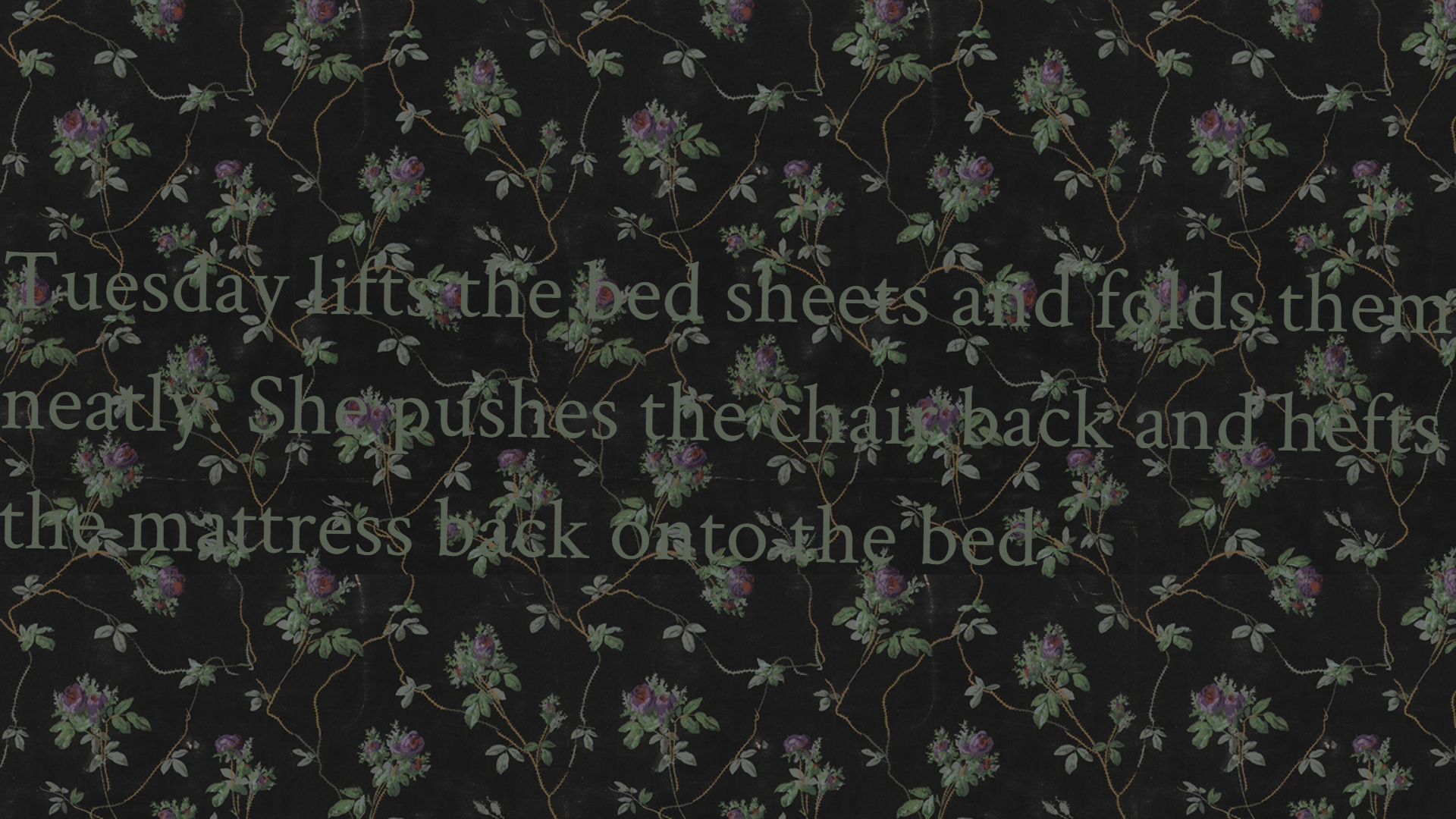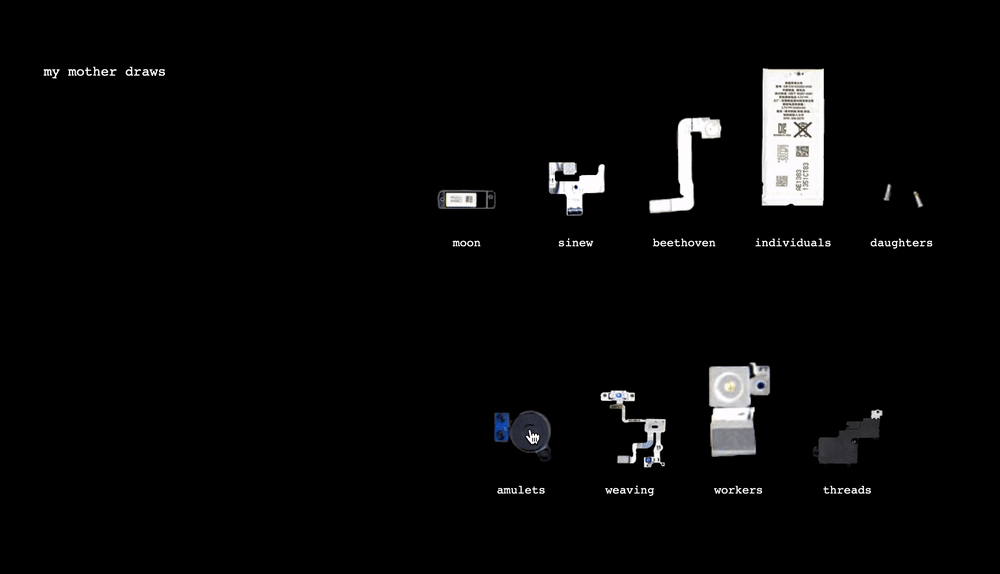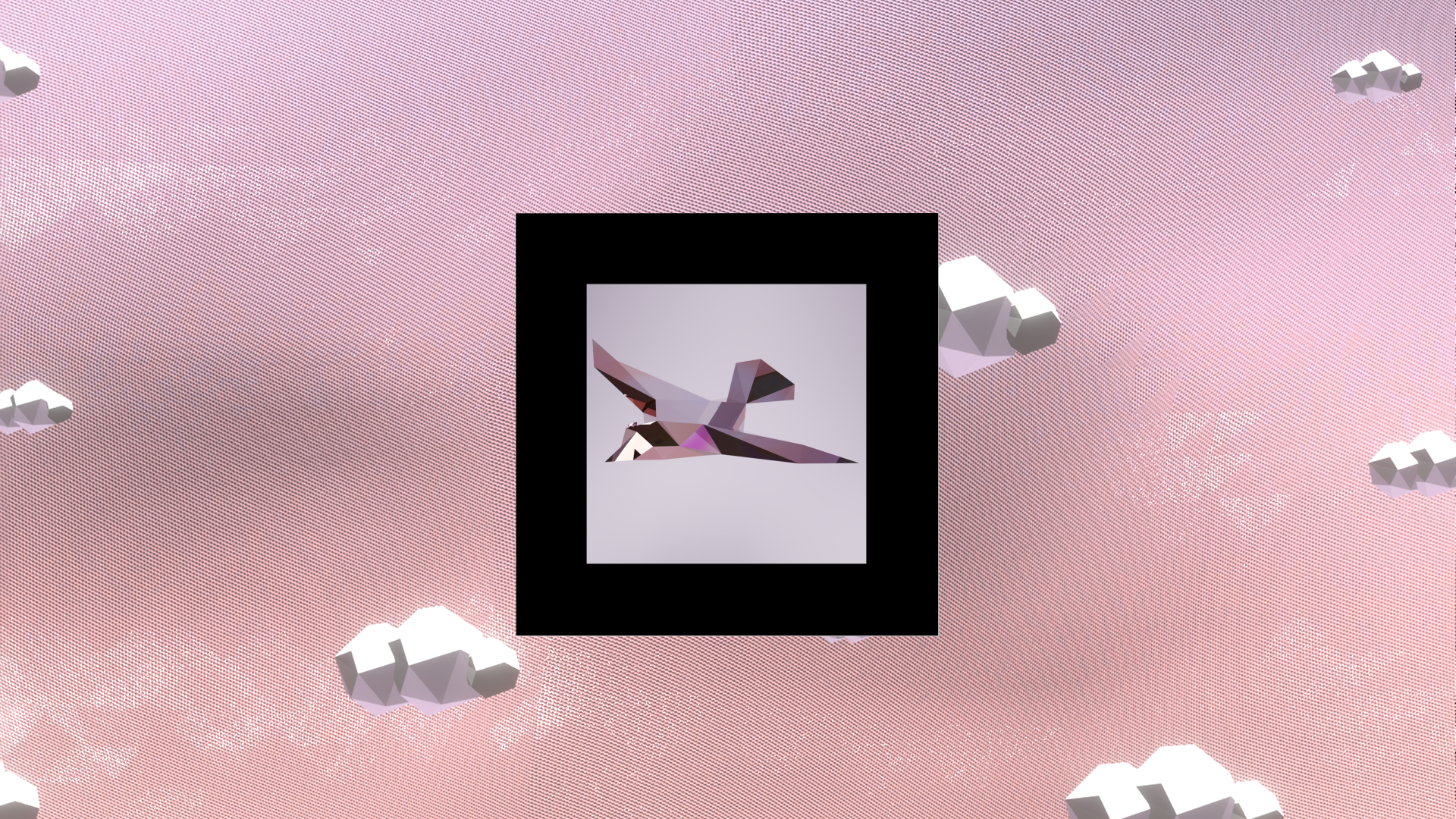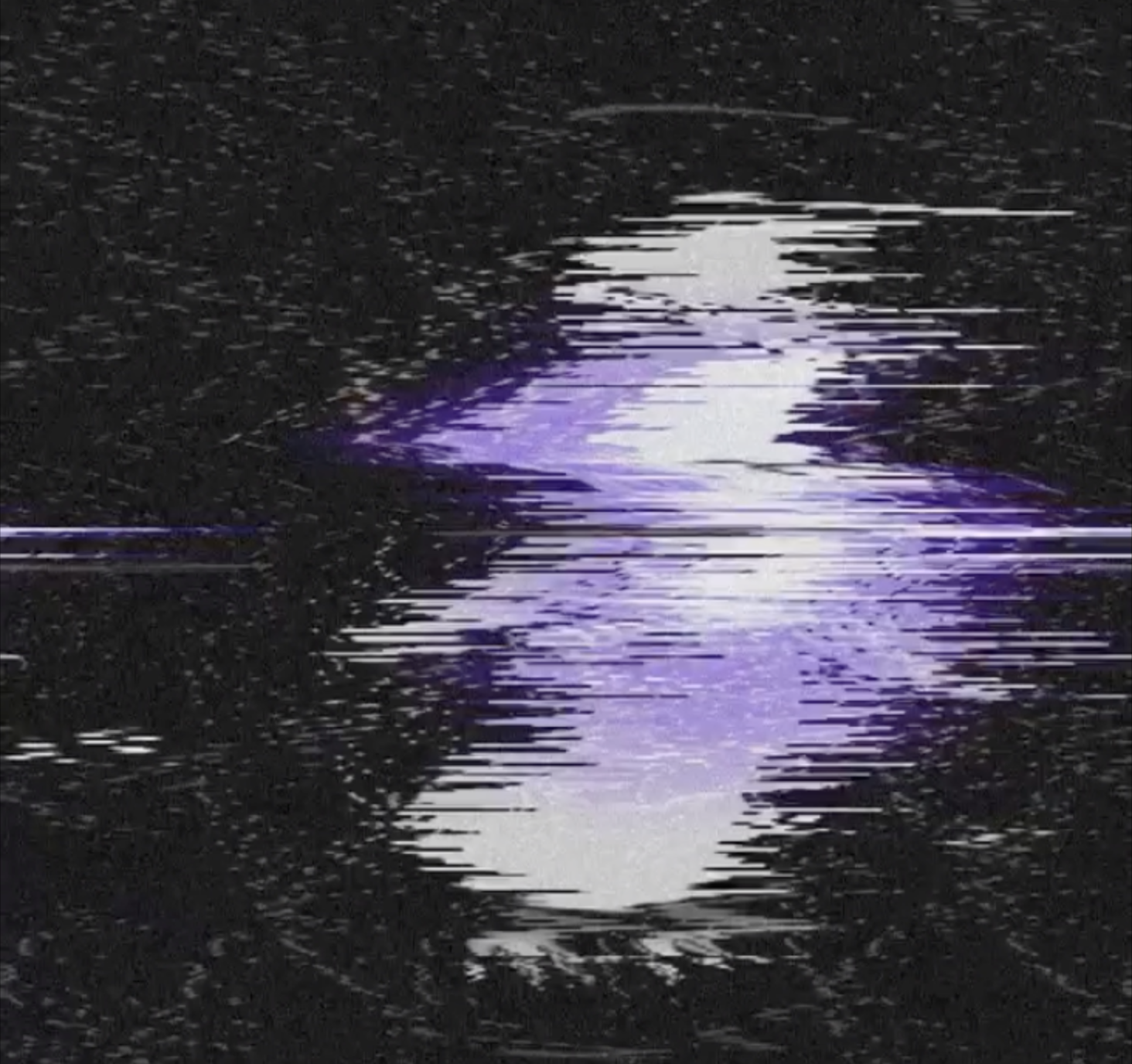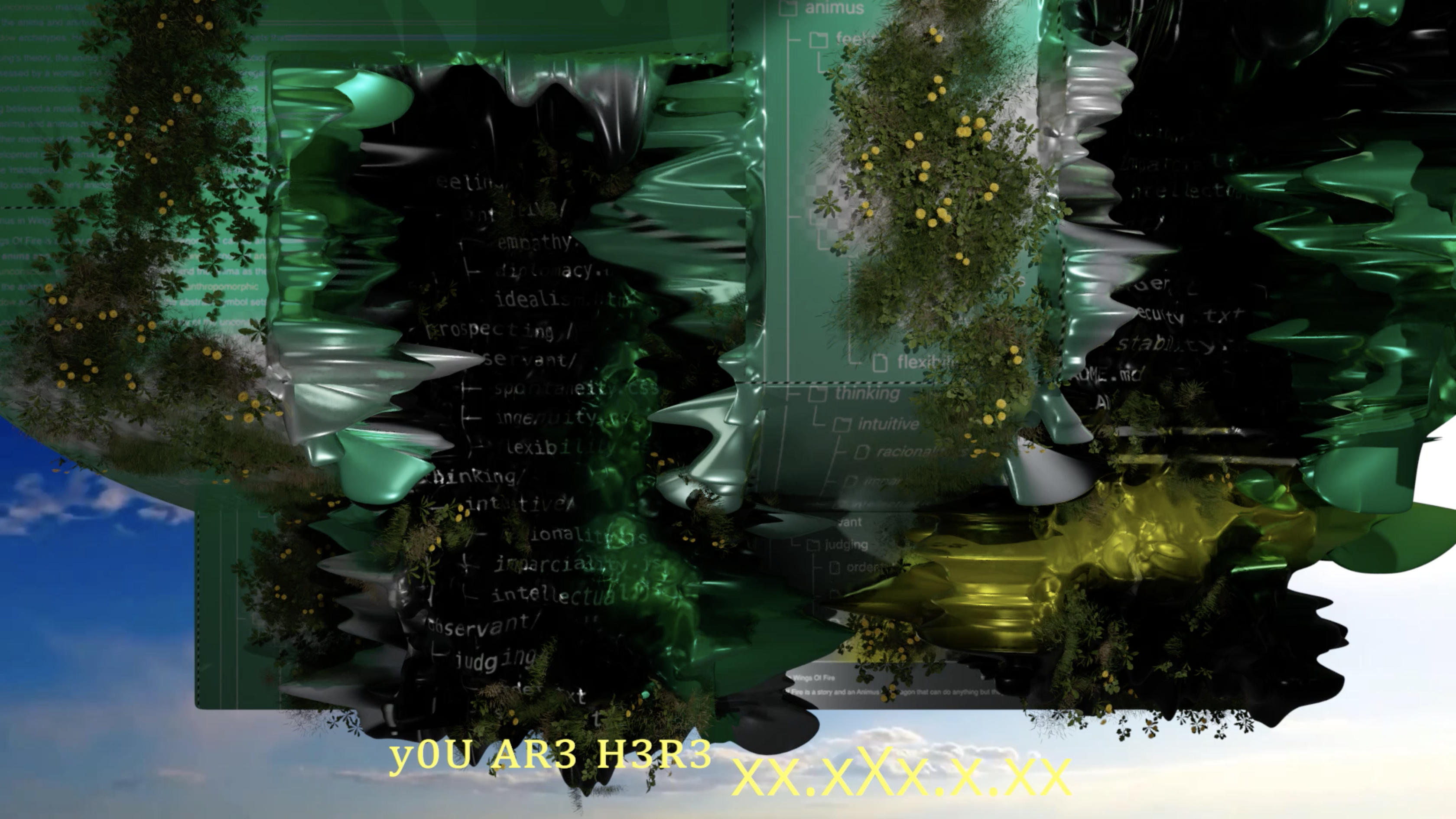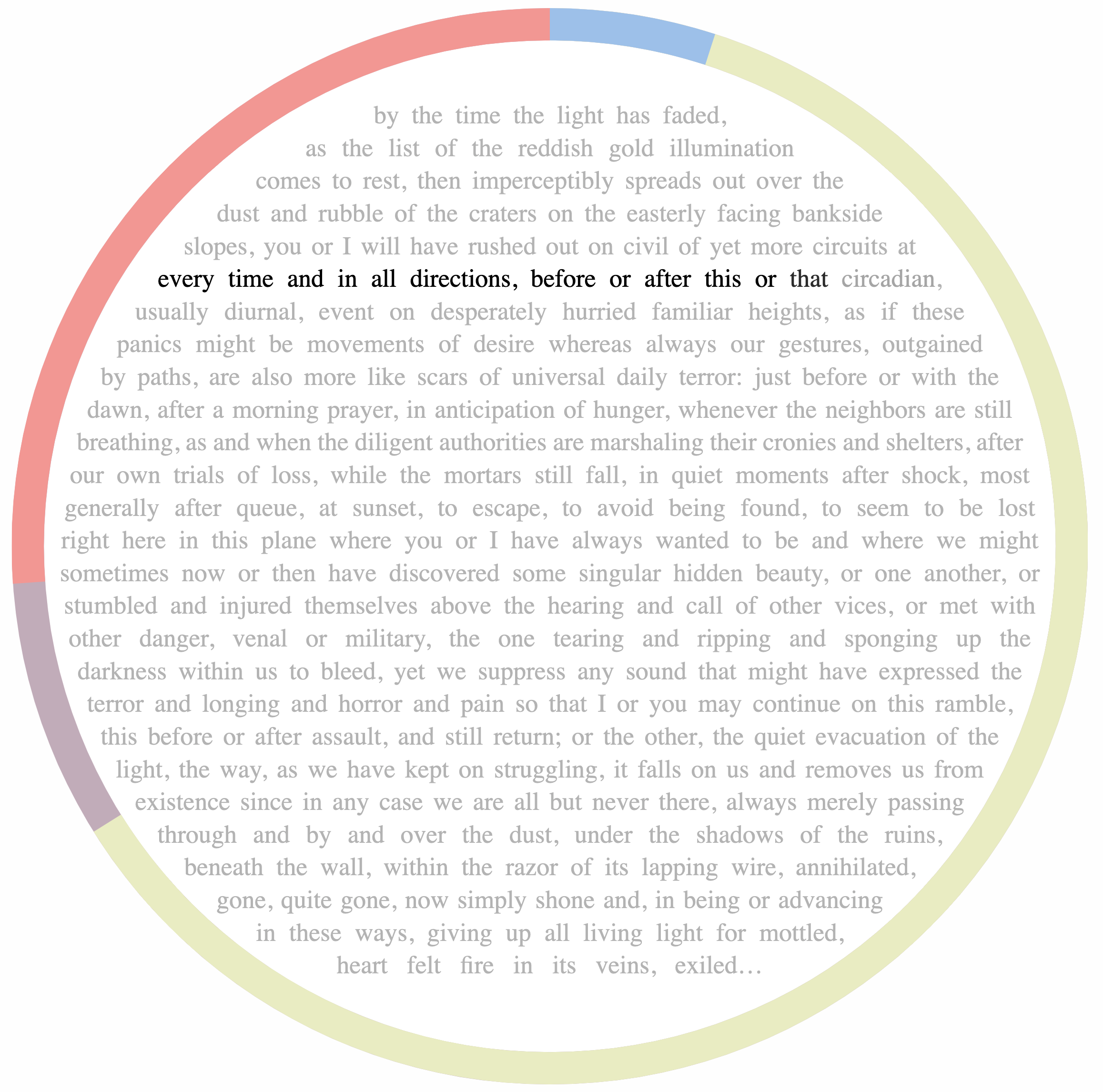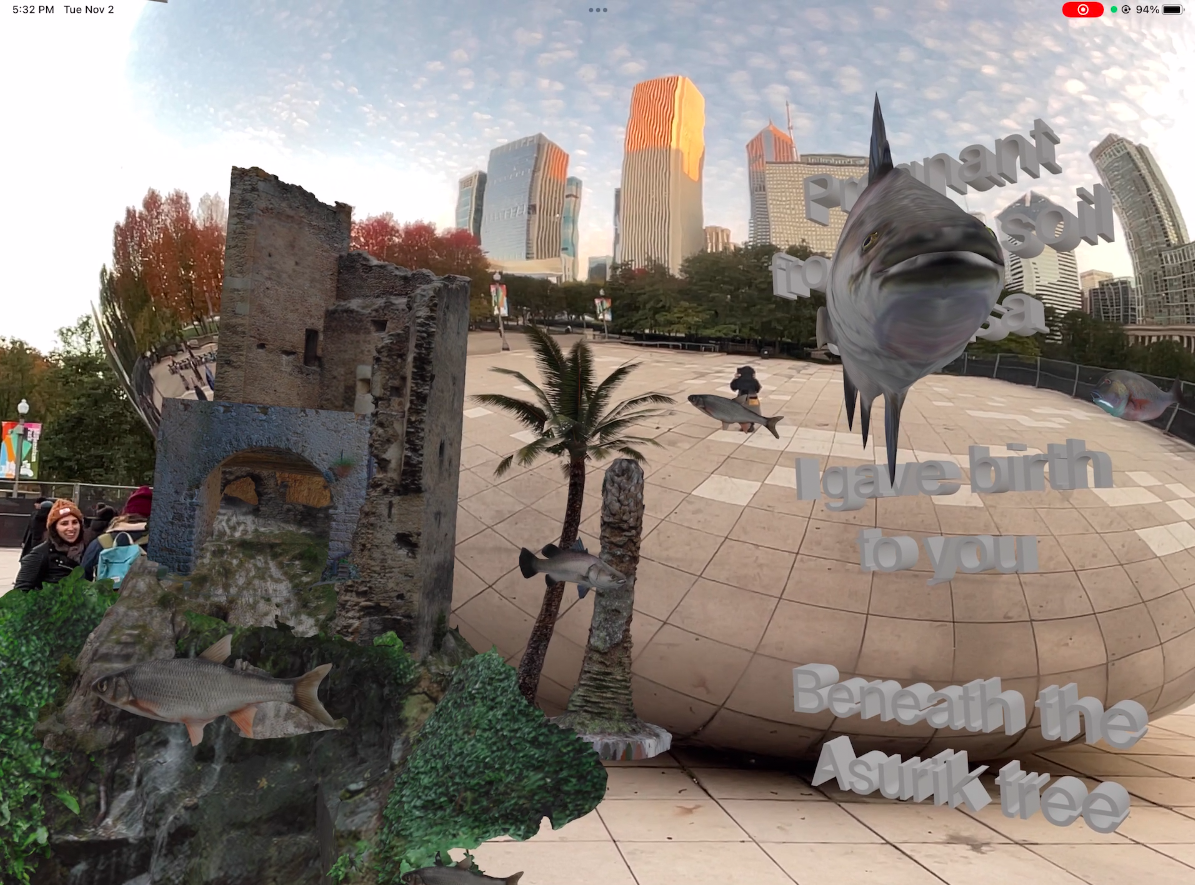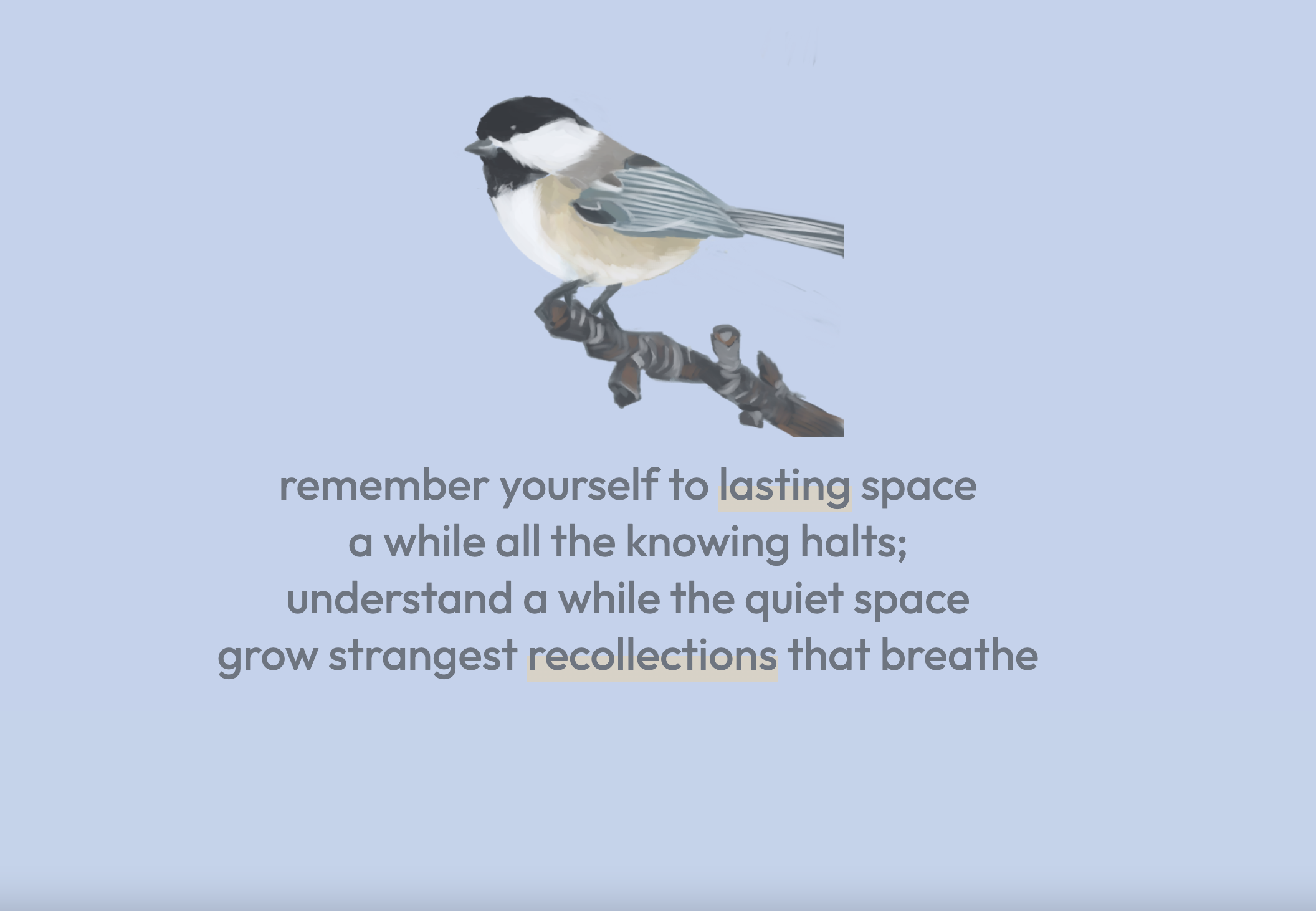Fall 2024 Editor’s Note
by Grace Turner
In times of flux, not knowing what’s to come, we return to what we know, where we have been, and where we started. Maybe we can start again. Welcome to the Fall 2024 Issue of The New River: A Journal of Digital Art & Literature.
In 1996, our founder, Ed Falco, created something special—that is, The New River. This was the first literary journal dedicated to electronic literature. Over the years, we’ve moved away from and then back again towards our genesis once we realized we had been sitting on something significant. Because hey, it feels good to be first.
In investigating our origin story, The New River editor Kaitlyn Grube sat down with Maxwell Neely-Cohen and Shelby Wilson of The HTML Review to discuss the early landscape of electronic literature and the ways electronic literature has found new forms through the years. We had dug through the archives and asked ourselves about a hundred times what exactly electronic literature was, but Wilson simplified it for us, saying, “it’s literature that’s made to exist on the web.” But the web is a volatile entity. Elements are subject to change without notice or evidence of the before. Things disappear, and The Wayback Machine can only do so much. The very nature of electronic literature means that it, too, is changeable and vulnerable to digital decay. We can define it by the genres it’s created (and frequently defies), but it is also defined by its transience.
The works selected for this issue raise issues of fragility, history, and possibility—like the conversation about electronic literature, these works ask what was before, what’s to come, and where is the breakdown between?
“Slumber” by Betsy Kenyon uses long exposure photography to show the passage of time in people nesting. The “snatches of movement” Kenyon describes are haunting, making the inhabitants appear as ghosts or traces.
“Reaching Out, Circling Back” by Kate Hollenbach also creates meaning through remnants of human presence. In this work, the user swipes and is able to see the phantom touches of other visitors on the site, both current and past.
“Floods or The Millimeters of Memory” by Angeliki Malakasioti deals with climate crisis and the delicate earth. In the section, “1096 millimeters of rain,” the words inundate the page, leaving the reader’s understanding of the event to be shaped by the materiality of the flood and the speed at which it happened. In “10 millimeters of soil,” we learn about the devastation to the earth and how very long it will take to regenerate what was lost.
“Divinatory Poetics Deck” by J. Michael Martinez calls on the artists and writers that have shaped his own art and thinking—the two included here are Federico García Lorca and Rosmarie Waldrop. To be used in divination, the artist pulls a card, calling on the spirit to be inspired.
“Telemetric” by Hamid Yuksel plays on our contemporary understanding of AI chatbots but employs a role reversal where the user takes the place of the AI, seeking to fulfil client requests that frequently demand an emotional response. This exploration of the human/machine connection is reminiscent of one of the very first chatbots, a computer program named ELIZA that simulated a Rogerian psychotherapist, emulating empathy.
“Curd Sonnet” by Coates takes campaign adventure games à la Dungeons and Dragons (and so far back as Colossal Cave Adventure, the first text adventure game) and brings them to a new dimension of atmosphere, introducing the soundscape of a crackling fire, rumblings of conversations, laughter, and an ominous coughing foreboding a perilous sickness on the journey.
“Haunted Machine” by Isabel Li grieves the death of a lover, whose artifacts linger on the living’s computer. On the simulated screen, her ghost pops up at the click alongside corrupted files and those still accessible in the Recycling Bin.
“Harbor” by Ronaldo V. Wilson evokes immediately the “palimpsest,” a twist with the faint and sometimes foregrounded harbor as the primary backdrop, and with sound and visual effaced for the presence of others. This work forms a layered “remembering,” with references to human history and contemporary problems.
“X Questions” by Ed Falco asks after the complexities of otherness and society. We editors of The New River paid homage to the history of hypertext by collaboratively “e-litifying” his poem and linking each line to a vast reach of the internet.
December, 2024
Fall 2024 Issue Editors: Ayla Elam, Kaitlyn Grube, Anja Hemesath, Isaac Maxey, Maria Psarakis, Ifreen Raveen, A. C. Silva, Grace Turner, Brit Washburn
Interviews Editor: Kaitlyn Grube
Social Media Editors: Ifreen Raveen, Grace Turner
Events Managers: Ayla Elam, Maria Psarakis, Brit Washburn
Podcast Manager: A. C. Silva
Fall 2024 Issue Contributor Bios
Coates (they/them) is an interdisciplinary writer and artist scuttling in Western Mass. They hold an MFA in Metalsmithing from Cranbrook Academy of Art and an MFA in fiction from the University of Massachusetts Amherst. Their work, primarily multi-genre installation and multi-media sculpture is a love letter to splintering fields. That in-between space—that collision zone of writing, body, craft, and game-think can hold the multi-dimensional thrums of gender, of disability, of joy, and the magic of experience. Their work has appeared in the Iowa Review, 3 am Magazine, CICA, Herter Gallery, Marzee Gallery, Slag Mag, and Hawai’i Review, among others. Currently they teach at undergraduate and graduate art and writing at the University of Massachusetts Amherst.
Maxwell Neely-Cohen is a writer, musician, and designer based in New York City. His nonfiction and essays have appeared in places like The New Republic, SSENSE, and BOMB Magazine. His work in theater, technology, video games, and performance has been acclaimed by The New York Times Magazine, Frieze, and The Financial Times. He is the author of the novel Echo of the Boom. He is currently the publisher of The HTML Review and a fellow at the Harvard Law School Library Innovation Lab.
Ed Falco
Ed Falco’s latest book is the poetry collection, X in the Tickseed (LSU, 2024). His previous books include a second poetry collection, Wolf Moon Blood Moon (LSU, 2017), and the novels Transcendent Gardening (C&R Press, 2022), Toughs (Unbridled Books, 2014) and The Family Corleone (Grand Central, 2012). The Family Corleone was developed from a screenplay by Mario Puzo, spent several weeks on The New York Times Best Seller List, and so far has been published in twenty-one foreign editions. His most recent short story collection is Burning Man (SMU, 2011). His previous short story collections are Sabbath Night in the Church of the Piranha: New and Selected Stories (Unbridled Books, 2005), Acid (University of Notre Dame Press, 1996), and Plato at Scratch Daniel’s and Other Stories (University of Arkansas Press, 1990). He is also the author of four more novels: Saint John of the Five Boroughs (Unbridled Books, 2009), Wolf Point (Unbridled Books, 2005), A Dream with Demons (Eastgate Systems, 1997), and Winter in Florida (Soho, 1990), as well as a collection of literary and experimental short fictions, In the Park of Culture (University of Notre Dame Press, 2005), and a collection of hypertext poems, Sea Island (Eastgate Systems, 1995). Ed’s play, Possum Dreams, was named one of the ten best plays on Cleveland Stages in 2014 by The Cleveland Plain Dealer; and The Cretans, his play reimagining of the mythology surrounding the birth of the Minotaur, based on a surviving fragment from Euripides’ play of the same name, was produced as a radio play/podcast by the Virginia Tech Theatre Department in 2021. Ed is the founding editor of The New River, an online journal of digital writing and art.
Kate Hollenbach is an artist, programmer, and educator based in San Francisco, California. She creates video and interactive works examining critical issues in user interface and user experience design, with a focus on user habits, data collection, and surveillance. She has taught creative coding and media arts as an Assistant Professor of Emergent Digital Practices at University of Denver and as a Professional Lecturer at DePaul University. She has presented and exhibited work in venues across the United States, including the San Francisco Museum of Modern Art, SIGGRAPH, and INST-INT. Kate is currently Education Director at Gray Area Foundation for the Arts.
Betsy Kenyon
I live and work in New York City with my husband, cinematographer Richard Rutkowski, and our daughter Daisy. My education includes Sarah Lawrence College and an MFA from The School of the Art Institute of Chicago. My work is included in the following collections: Centre George Pomidou, The Art Institute of Chicago, Photography Collection; Museum of Modern Art/Franklin Furnace Book Collection; Whitney Museum of American Art, Library; Metropolitan Museum of Art, Thomas J. Watson Library; Groniger Museum, Special Collections; New York Public Library, Print Collection; and Yale University, Art and Architecture Library.
Isabel Li
I’m Isabel 玥 Li (they, she), a non-binary Chinese-Kiwi artist, writer, researcher, and pattern-matcher. I studied Computer Science, Creative Writing, Design, and New Media at UC Berkeley. I conduct human-computer interaction research at the Berkeley Institute of Design, investigating creativity support tools for artists and youths’ technological futures. At Netflix, I build tools for improving translation and accessibility.
Angeliki Malakasioti is a multidisciplinary artist and academic living in Greece. She is Assistant Professor in the Department of Audio and Visual Arts, Ionian University. Her artistic and research activity focuses on the intersection of technology and human experience, digital culture and language, conceptual design, and multimodal discourse. She has multiple international publications, she has participated in international conferences, art and film festivals and exhibitions, and she has received prizes of experimental film making, photography and “art as research” contributions.
J. Michael Martinez is the author of four collections of poetry, including Heredities, which received the Walt Whitman Award from the Academy of American Poets, and Museum of the Americas, which was a winner of the National Poetry Series Competition and long-listed for the 2018 National Book Award in Poetry. His latest work is Tarta Americana, a finalist for the California Book Award.
He is an assistant professor in the Department of English and Comparative Literature at San Jose State University. His writings are anthologized in Ahsahta Press’ “The Arcadia Project: North American Postmodern Pastoral,” Rescue Press’ “The New Census: 40 American Poets,” and Counterpath Press’ “Angels of the Americlypse: New Latin@ Writing.”
Michael has read, lectured, or taught at universities and organizations nationwide, including The Folger Shakespeare Library, The Recovering the U.S. Hispanic Literary Heritage Conference, The Community of Writers at Squaw Valley, Naropa University, The University of Colorado at Boulder, The Association of Writers and Writing Programs, The Guadalupe Cultural Arts Center, The Tuscon Festival of Books, Canto Mundo, George Mason University and more.
Ronaldo V. Wilson, PhD, is the author of Narrative of the Life of the Brown Boy and the White Man (University of Pittsburgh, 2008), winner of the 2007 Cave Canem Prize., Poems of the Black Object (Futurepoem Books, 2009), winner of the Thom Gunn Award for Gay Poetry and the Asian American Literary Award in Poetry in 2010. His latest books are Farther Traveler: Poetry, Prose, Other (Counterpath Press, 2015), finalist for a Thom Gunn Award for Gay Poetry and Lucy 72 (1913 Press, 2018). Co-founder of the Black Took Collective, Wilson is also a mixed media artist, dancer and performer. He has performed in multiple venues, including the Pulitzer Arts Foundation, UC Riverside’s Artsblock, Georgetown’s Lannan Center, Dixon Place, the Atlantic Center for the Arts, and Lousiana State University’s Digital Media Center Theater. The recipient of fellowships from Cave Canem, the Djerassi Resident Artists Program, the Ford Foundation, Kundiman, MacDowell, the National Research Council, the Provincetown Fine Arts Work Center, the Center for Art and Thought, and Yaddo, Wilson is Associate Professor of Creative Writing and Literature at U.C. Santa Cruz, serving on the core faculty of the Creative Critical PhD Program, and co-directing the Creative Writing Program.
Shelby Wilson is a computer programmer and artist. Drawn to the seams of things both physical and digital, her work examines handcraft, material, and methods of computation. Her efforts have been featured in Frieze, MIT Technology Review, and Are.na Editorial. She is the co-editor of The HTML Review.
Hamid Yuksel is a creative technologist and frontend engineer based in Toronto. He enjoys working on multimedia projects involving a mix of visuals, writings, and interactives. With a focus on art and technology, he explores how these fields can overlap in weird ways. He also gives a big shout-out to his two cats and growing collection of houseplants that annoy a certain someone they all love.
